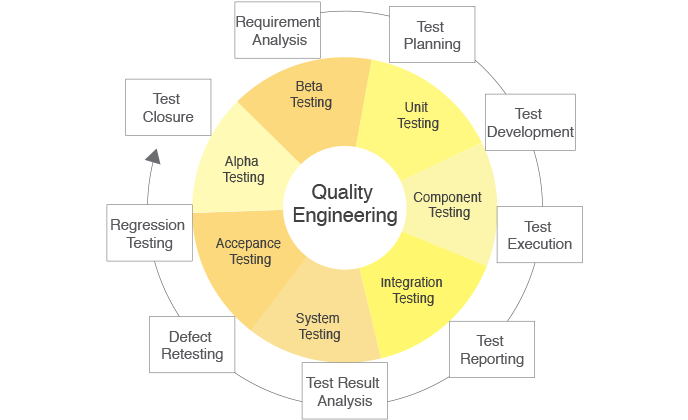
Quality Engineering
Tune your applications to meet your technical
and business requirements.
To verify that application works as expected, we adopt an iterative approach that begins from the very start of development to the time when the application is ready to ship to client.
After a comprehensive requirement analysis, a test strategy is designed that covers everything from test development procedures to the closure activities which ensure that the test meets the ‘exit’ criteria.
Since each phase of the software development life cycle goes through rigorous testing, hence it is done in various levels.

Two types of testing is done at Do With AI depending on the particular test objectives.
Functional Testing: Functional testing is done to verify specific functionalities of the program. It basically tends to answer questions like “can the user do this” or “does this feature work.”
Non Functional Testing: Non-functional testing refers to the aspects of the software that are not related to specific application features, but other performance parameters.
Test automation helps us automate some repetitive but necessary tasks in a formalized testing lifecycle, or add additional testing to save extra time spent on regression testing.
At Do With AI, we use tools like Selenium, Jenkins, Robotium, Cucumber, Capybara, Monkey Talk , HP QTP and HP UFT to control the execution of tests and the comparison of actual outcomes to the expected ones.
Our consultants help you devise a comprehensive roadmap to create an agile and scalable infrastructure that improves performance, reliability and security.
Let's talkGoal is not to reduce test resources or testing cycle time, it is to reduce the risk and cost of software failure by increasing the test coverage